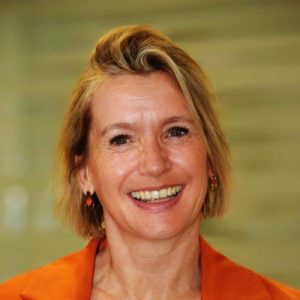Lees-top 10: Technical Accounting – het geheime wapen van de CFO

1. Meeting the challenges and opportunities of the new green economy
Environmental concerns are creating a big impact on business and finance and the trend can only increase. Companies of every size and description should be asking themselves how to meet the challenges and opportunities of the new green economy.
2. ‘True Gen’: Generation Z and its implications for companies
Long before the term “influencer” was coined, young people played that social role by creating and interpreting trends. Now a new generation of influencers has come on the scene. Members of Gen Z—loosely, people born from 1995 to 2010— are true digital natives: from earliest youth, they have been exposed to the internet, to social networks, and to mobile systems. That context has produced a hypercognitive generation very comfortable with collecting and cross-referencing many sources of information and with integrating virtual and offline experiences.
3. Consultancy: another path for finance professionals
Financial staffing and interim management firm Robert Half Management Resources recently surveyed 1,000 CFOs and found that nine in ten respondents view a consulting career as attractive for senior-level accounting and finance executives. "It's been as much driven by employers as it has by employees," said Tim Hird, executive vice-president at the firm.
4. 4 Climate Change Myths Debunked
To mitigate climate risks at the pace needed to create real change, corporate and government leaders must fundamentally shift the way they approach their risk strategies to address climate change challenges. While finance leaders can, and should, play a crucial role in driving this change in corporate opinion, skepticism has held them back.
5. Clayton Christensen, 'The Innovator's Dilemma' Author, Is Dead at 67
The Harvard professor, whose ideas about innovation had a profound influence on U.S. business, was as gifted a teacher as he was a thinker.

6. How Will You Measure Your Life?
By Clayton M. Christensen. Before I published The Innovator’s Dilemma, I got a call from Andrew Grove, then the chairman of Intel. He had read one of my early papers about disruptive technology, and he asked if I could talk to his direct reports and explain my research and what it implied for Intel. Excited, I flew to Silicon Valley and showed up at the appointed time, only to have Grove say, “Look, stuff has happened. We have only 10 minutes for you. Tell us what your model of disruption means for Intel.”
7. Is Your Innovation Process a Corporate Illusion?
The term “innovation lab” evokes images of millennials engaged in creativity, play and quick-fire collaboration. You can often recognise such a venue by its trademark features: open spaces, funky furniture, eye-catching pictograms, tables littered with gadgets, boxes of Lego and LCD panels showing futuristic videos on an endless loop. You may even spot the odd robot poised for action.
8. Technical Accounting: The CFO’s Secret Weapon
To those who argue that CFOs must be more than competent controllers — we wholeheartedly agree. But, to those who diminish the importance of capable, strategic, proficient technical accounting as a critical part of finance, we say, listen up: there’s simply no greater partner than accounting for delivering desired financial results.
9. Climate Change: Evading the “Too Late, Too Costly” Trap
The raging bushfires sweeping through Australia, partly related to unusually dry conditions stemming from climate change, are a stark reminder that the 2020s must be a decade of concerted climate action. While the stakes are exceptionally high, unfortunately the urgency is unevenly recognised by the powers that be in business and politics.
10. Exit strategies
Fifty years after its publication, Albert O. Hirschman’s Exit, Voice, and Loyalty still has a lot to tell us about the life of organizations.











